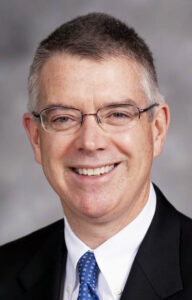By Dr. Tim Millea
The benefits of regular exercise to physical health are well known. Those who establish a commitment to physical activity early in life and then maintain it are more likely to enjoy better quality of life in later years. Better heart and lung function, improved balance with lower risk of falls and stronger bone density are the return on the investment of time and effort.

But what about mental function? Can we improve our intellectual function by adherence to regular exercise in our lives? Almost all of us know someone in their 70s or 80s who has lived that life and we marvel at their physical appearance, their activity level and their mental sharpness.
Over the past several years, the scientific evidence to support that observation has become increasingly clear. We maintain better blood flow to the brain and improve the ability of our brain cells to grow and adapt. More and more studies reveal a lower risk of cognitive impairment and dementia in individuals who consistently exercise throughout their lives.
A report from Rush University Medical Center in Chicago in the journal Geriatrics (March 2022) outlined the correlation between cognitive decline and physical activity in older adults. Three groups were studied: those with no exercise beyond normal daily activities, those with fewer than two and a half hours of exercise weekly and, finally, those with more than two and a half hours of exercise weekly. Over the 20 years of the study, those with up to two and a half hours of weekly exercise had 30% less cognitive decline, while those who exercised even more had 43% less.
Just one week after the Rush University study was published, a similar report from Japan appeared in the online Journal of the American Medical Association Network. Nearly 40,000 individuals were followed for two decades, with data collected about their daily physical activity and the onset of dementia. The most important finding was a clear association between the amount of daily exercise and a lower risk of dementia. The more exercise the person did, the lower the risk of dementia, particularly in men.
Of course, many other factors can contribute to the onset of dementia. Those with heart disease or a history of stroke, high blood pressure, diabetes and obesity are at increased risk. These medical concerns all benefit from a consistent exercise program as well. When combined with the strong evidence of the mental health benefits, the public health improvements in the decades to come could be dramatic.
Interestingly, the nature of the exercise does not appear to be significantly important. It seems to be not a question of “What to do?” as much as “Just do it!” The recent studies noted above included a wide variety of activities: walking for exercise, jogging or running, gardening or yard work, dancing, calisthenics or general exercise, golf, bowling, bicycle riding and swimming or water exercises.
A logical question relates to the benefits of exercise for those who are already suffering with dementia. Fewer than 20% of those over 65 years old maintain a regular exercise program, according to estimates; that percentage is certainly lower in those with dementia. The benefits of exercise in dementia patients are the same as in normal cognition adults: better strength and balance, as well as improved sleep cycles, mood enhancement and interpersonal participation. Even those with advanced memory loss and confusion demonstrate diminished stress, depression and anxiety with regular treadmill walking or exercise bike cycling. Someone diagnosed with dementia will realize greater benefits the sooner a structured regimen of exercise is introduced into their schedule.
Although it has been known by many names over the millennia, dementia has always been part of the human experience. According to rabbinic tradition, King Solomon was the author of Ecclesiastes. The 12th chapter of that 3,000-year-old book remains relevant today, exhorting us to, “Remember the Creator in the days of your youth, before the evil days come and the years approach of which you will say, ‘I have no pleasure in them.’”
However, 200 years after Solomon, Isaiah’s words of encouragement to God’s followers are consistent with today’s science: “He gives power to the faint, abundant strength to the weak … They that hope in the Lord will renew their strength, they will soar on eagle’s wings. They will run and not grow weary, walk and not grow faint.”
We are all children of God, given gifts of body, mind and soul. Caring for all three is our best means to give him the glory for our lives.
(Dr. Tim Millea is president of the St. Thomas Aquinas Medical Guild and a member of St. Paul the Apostle Parish in Davenport.)











